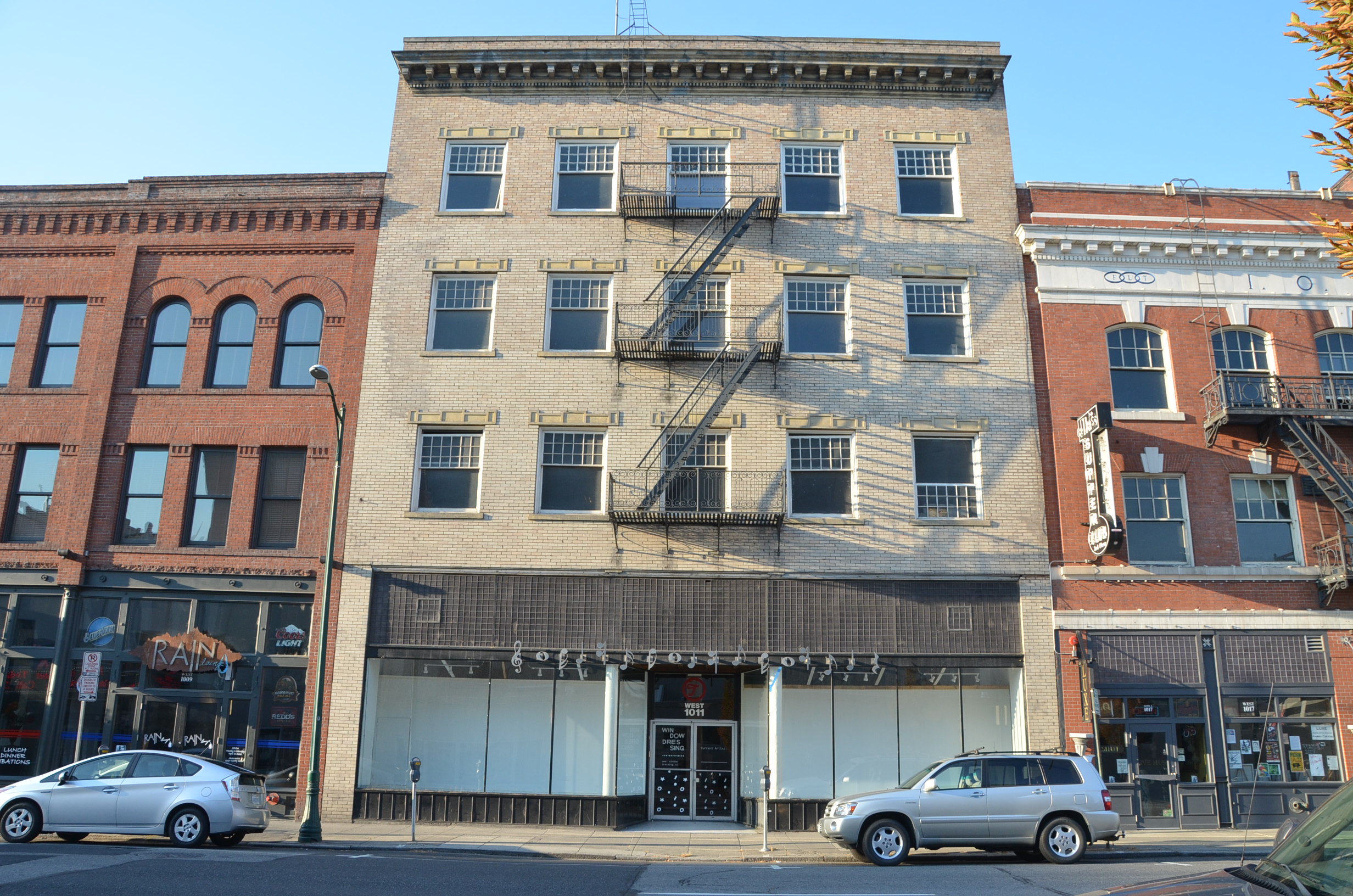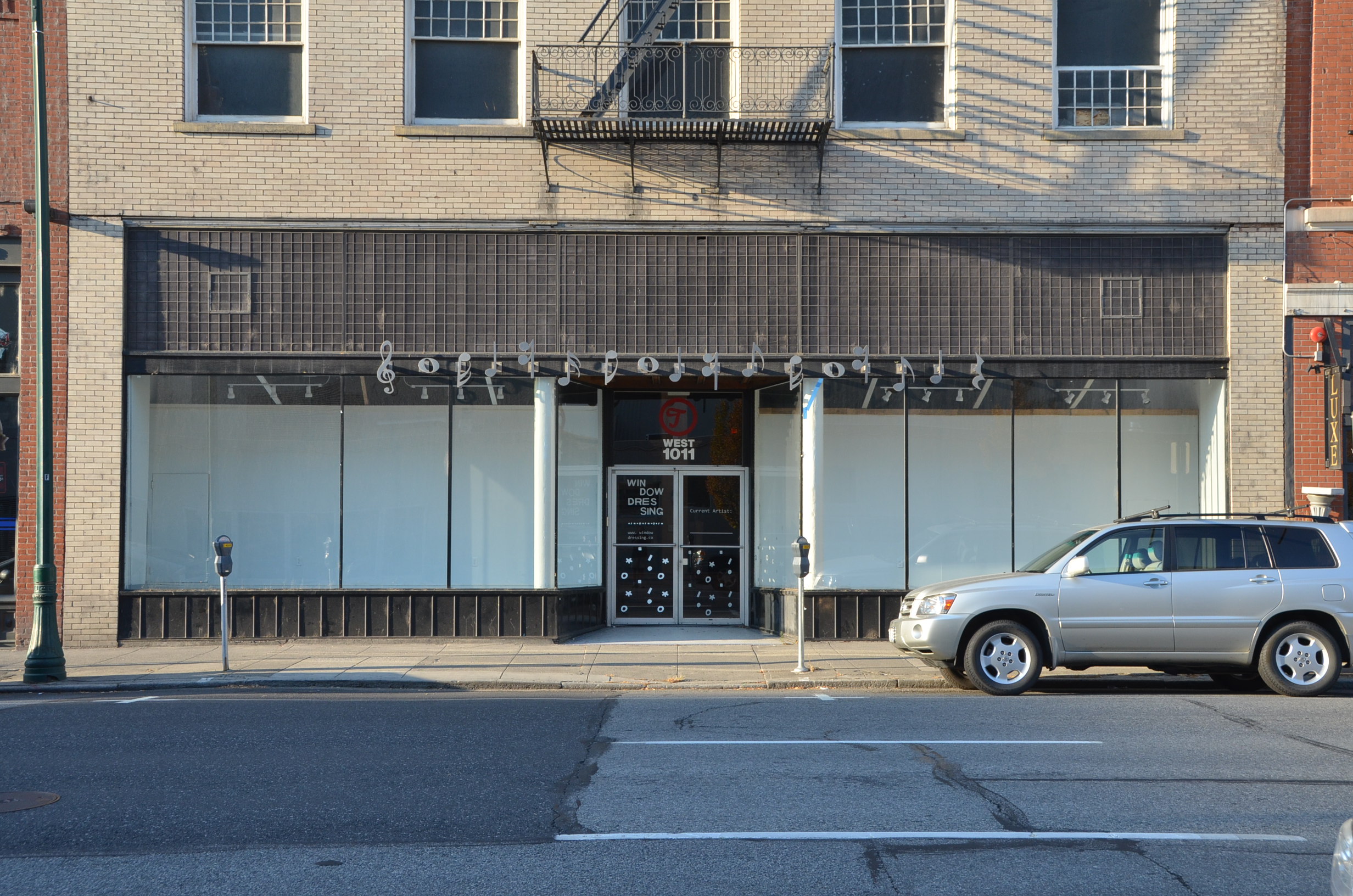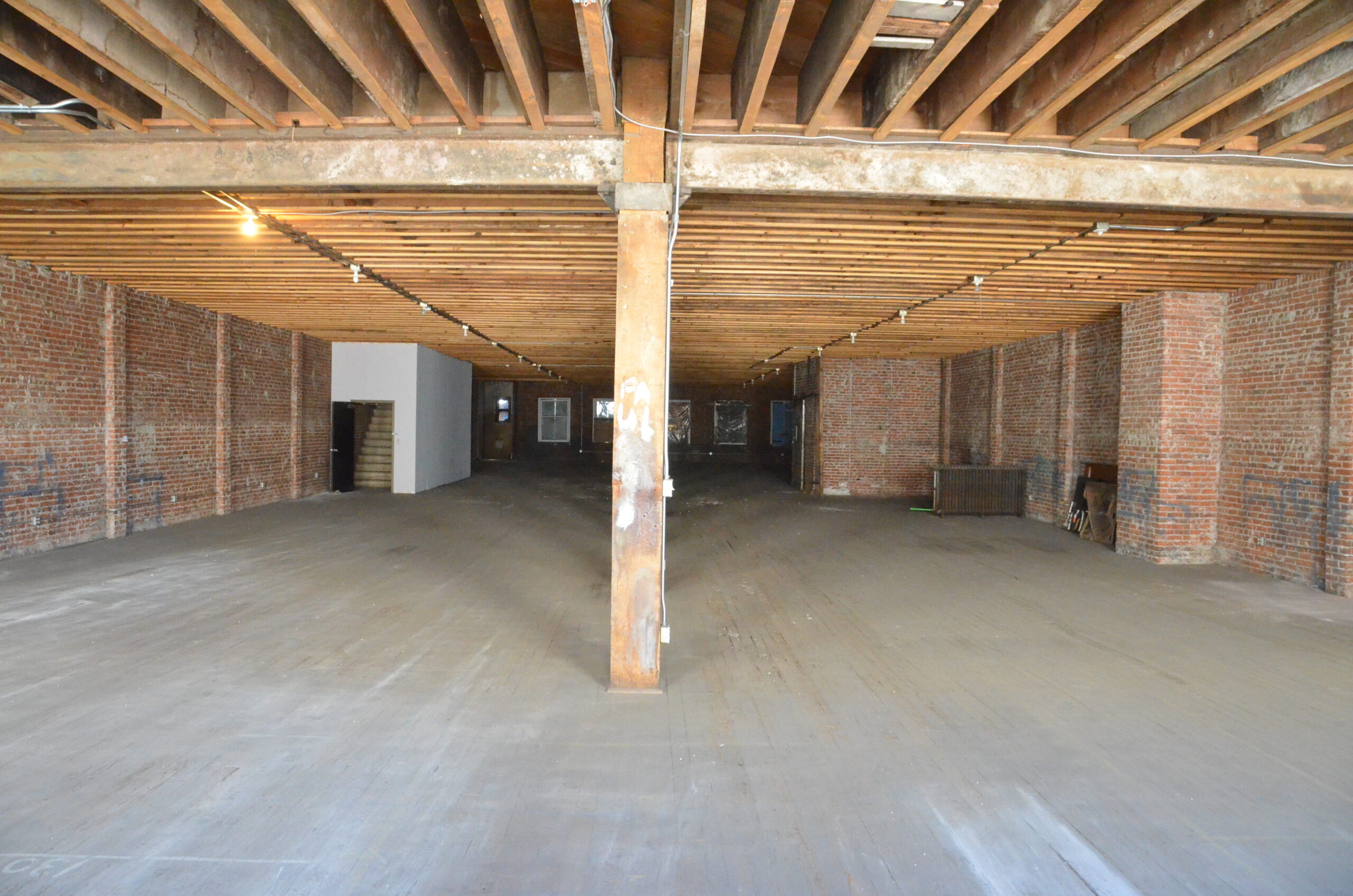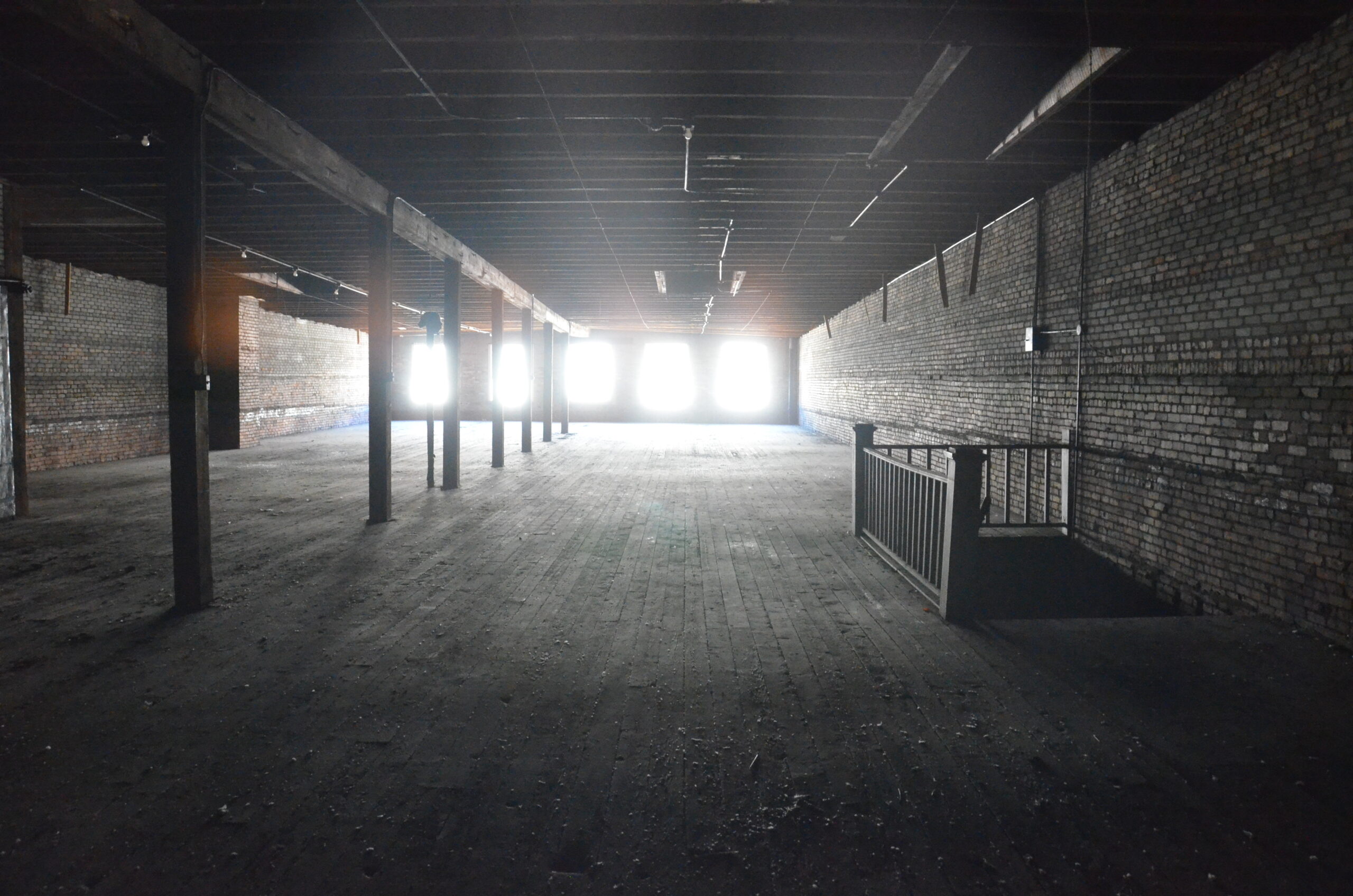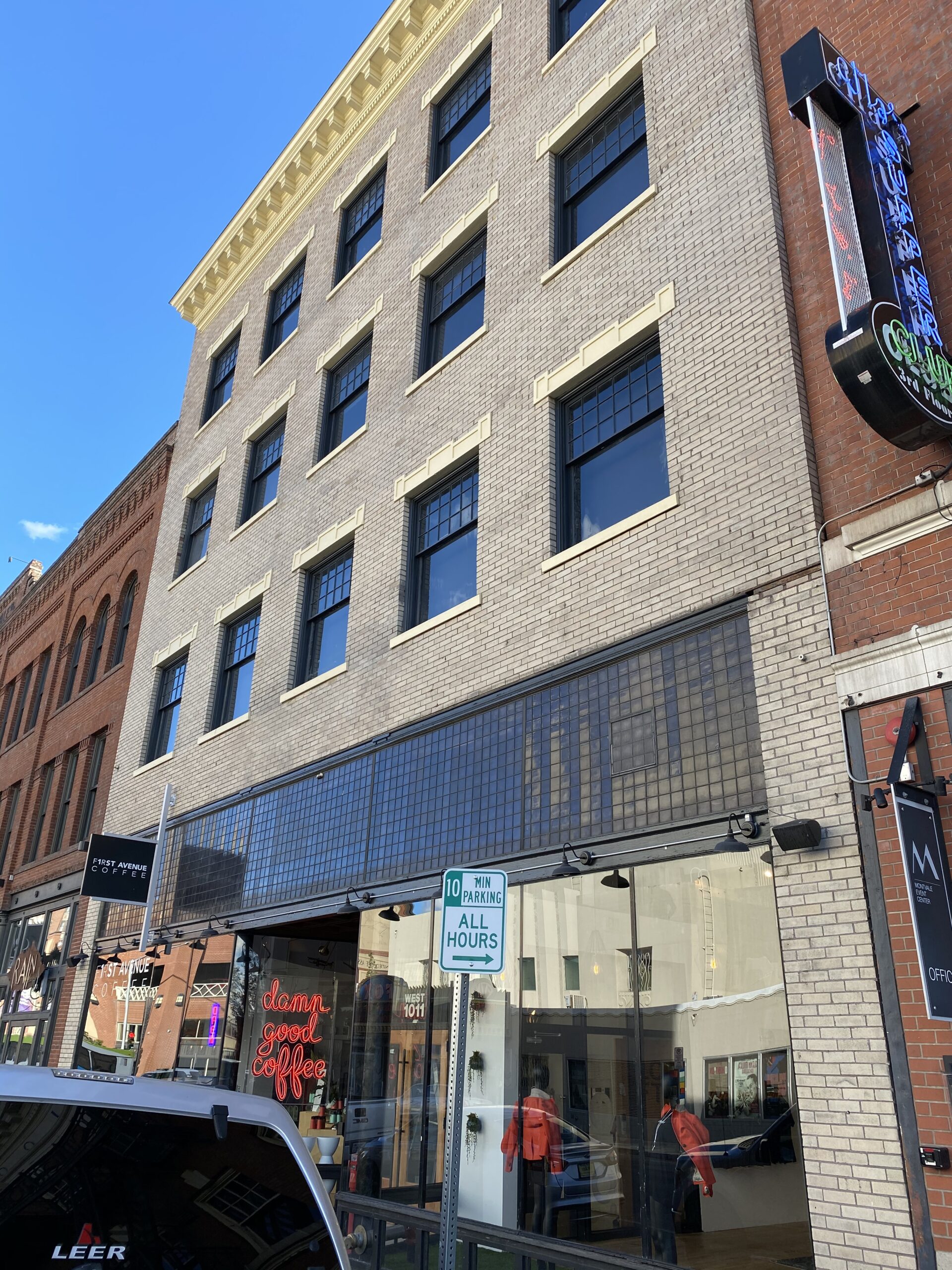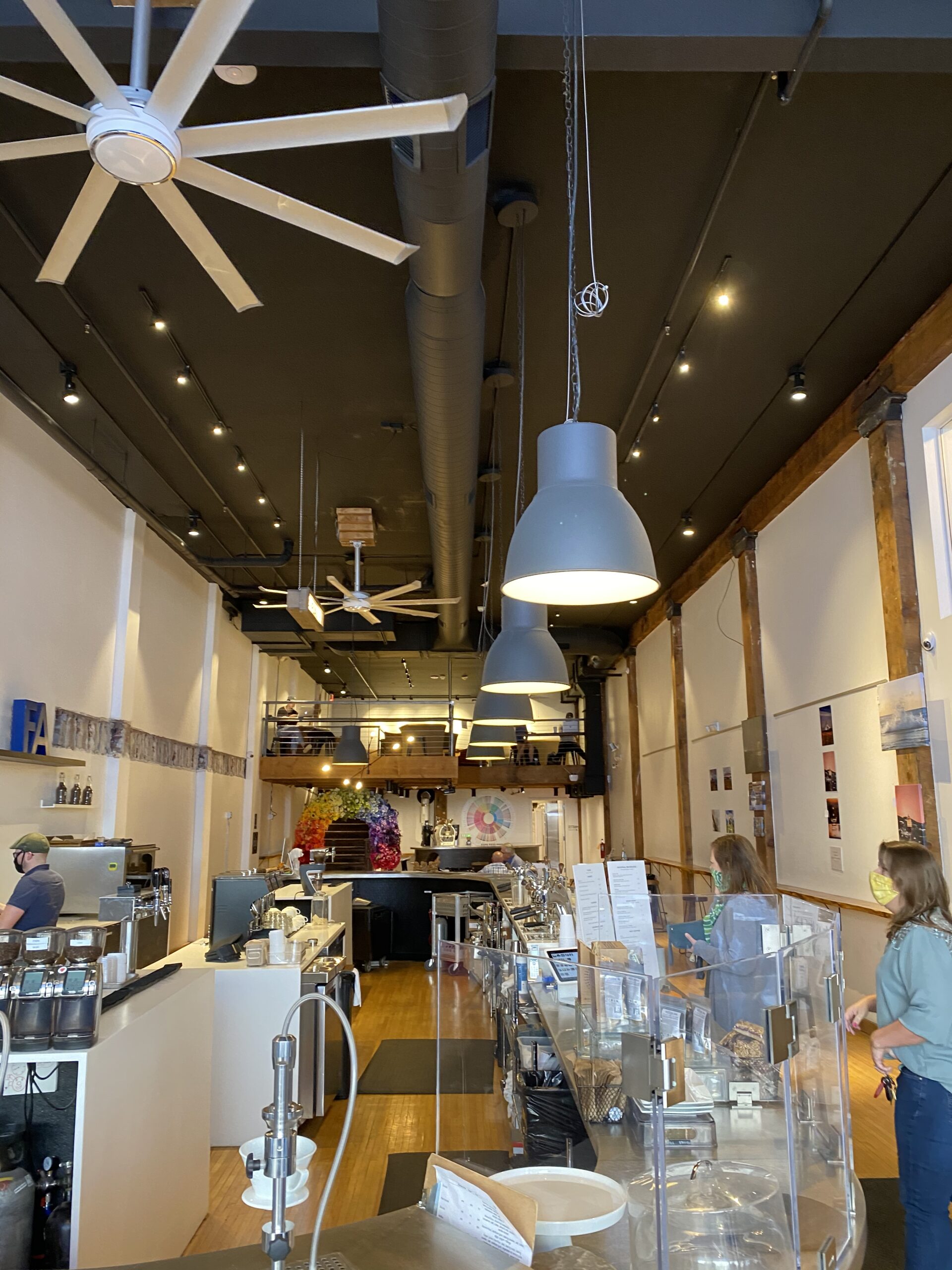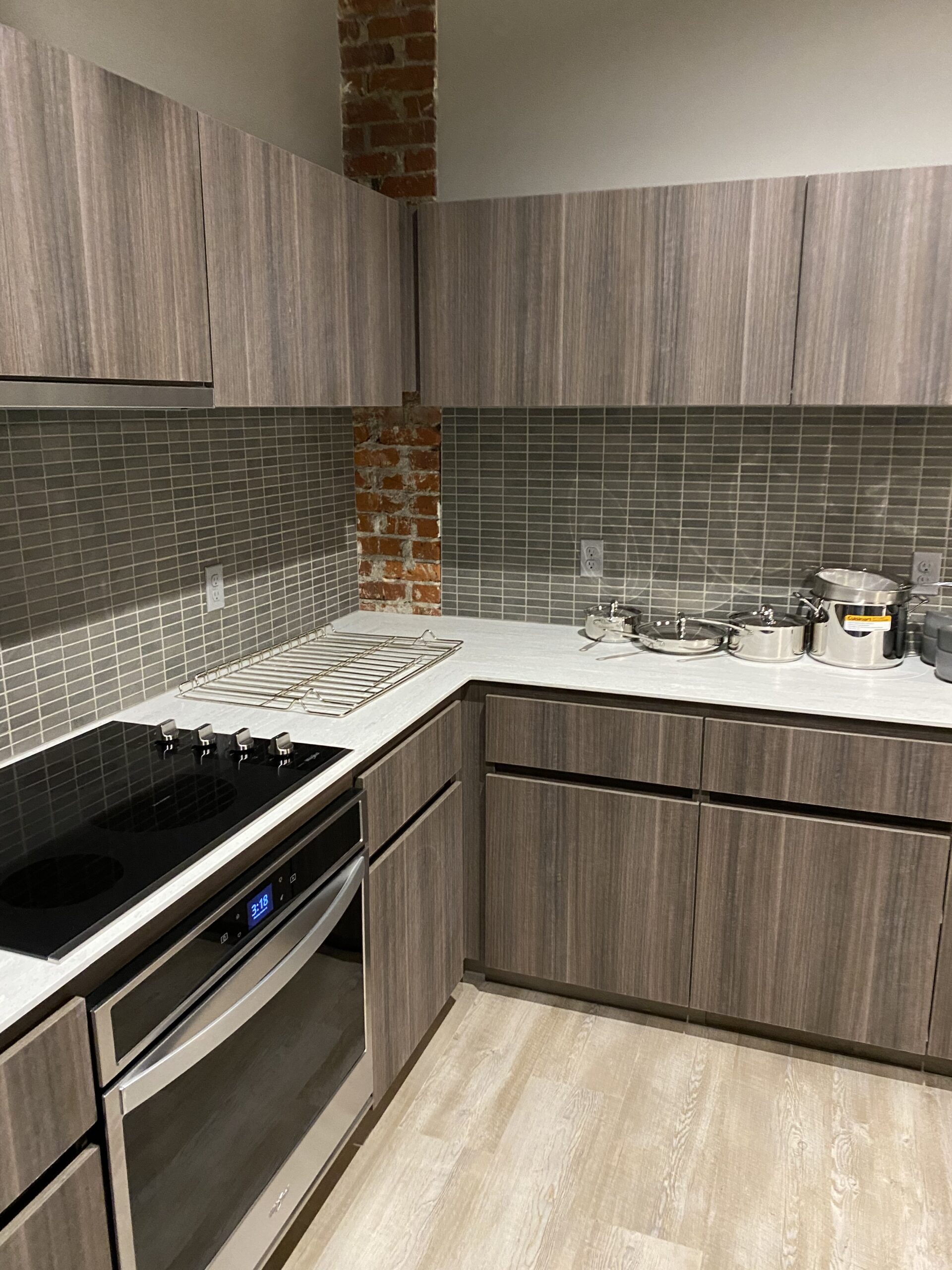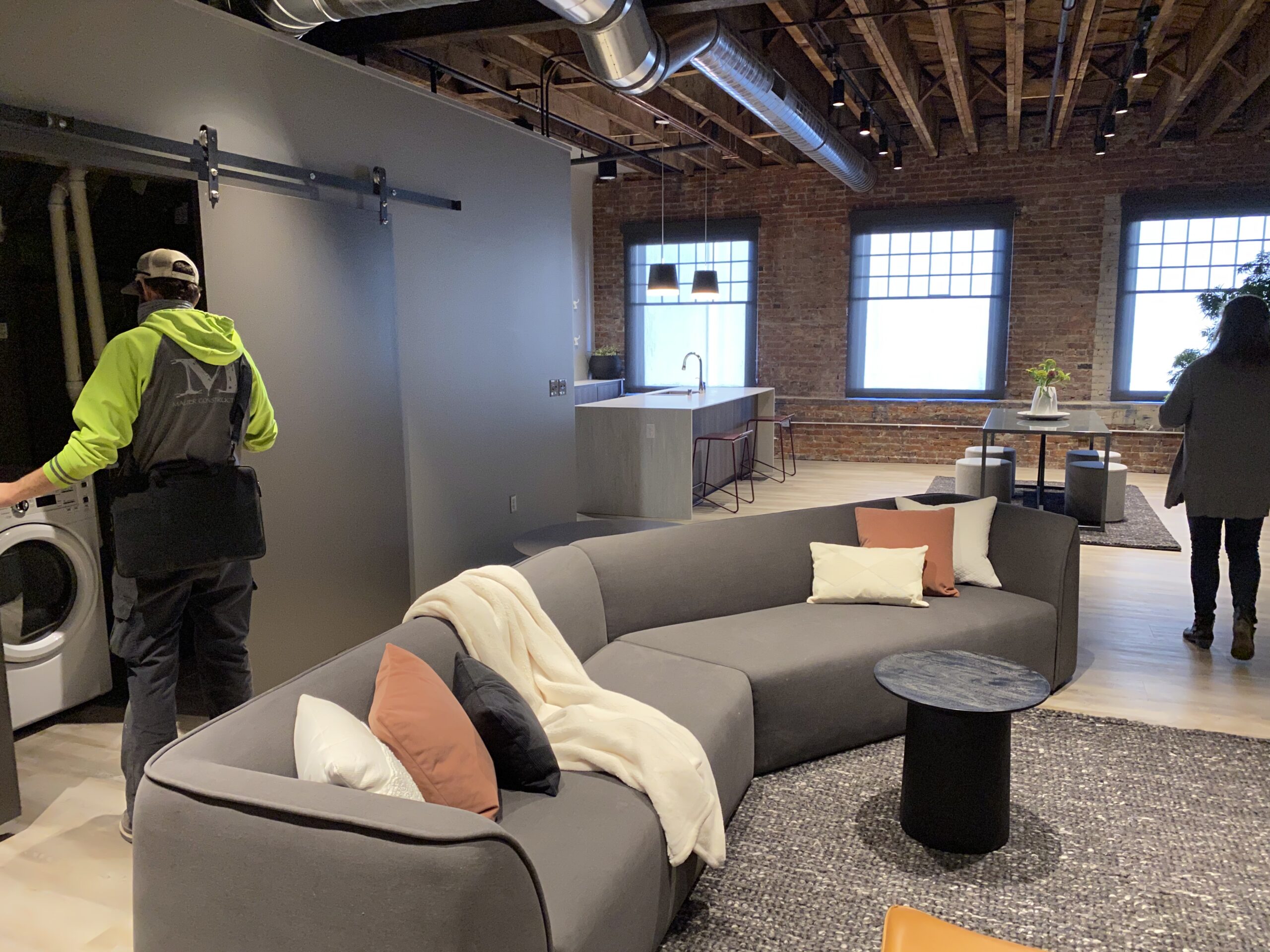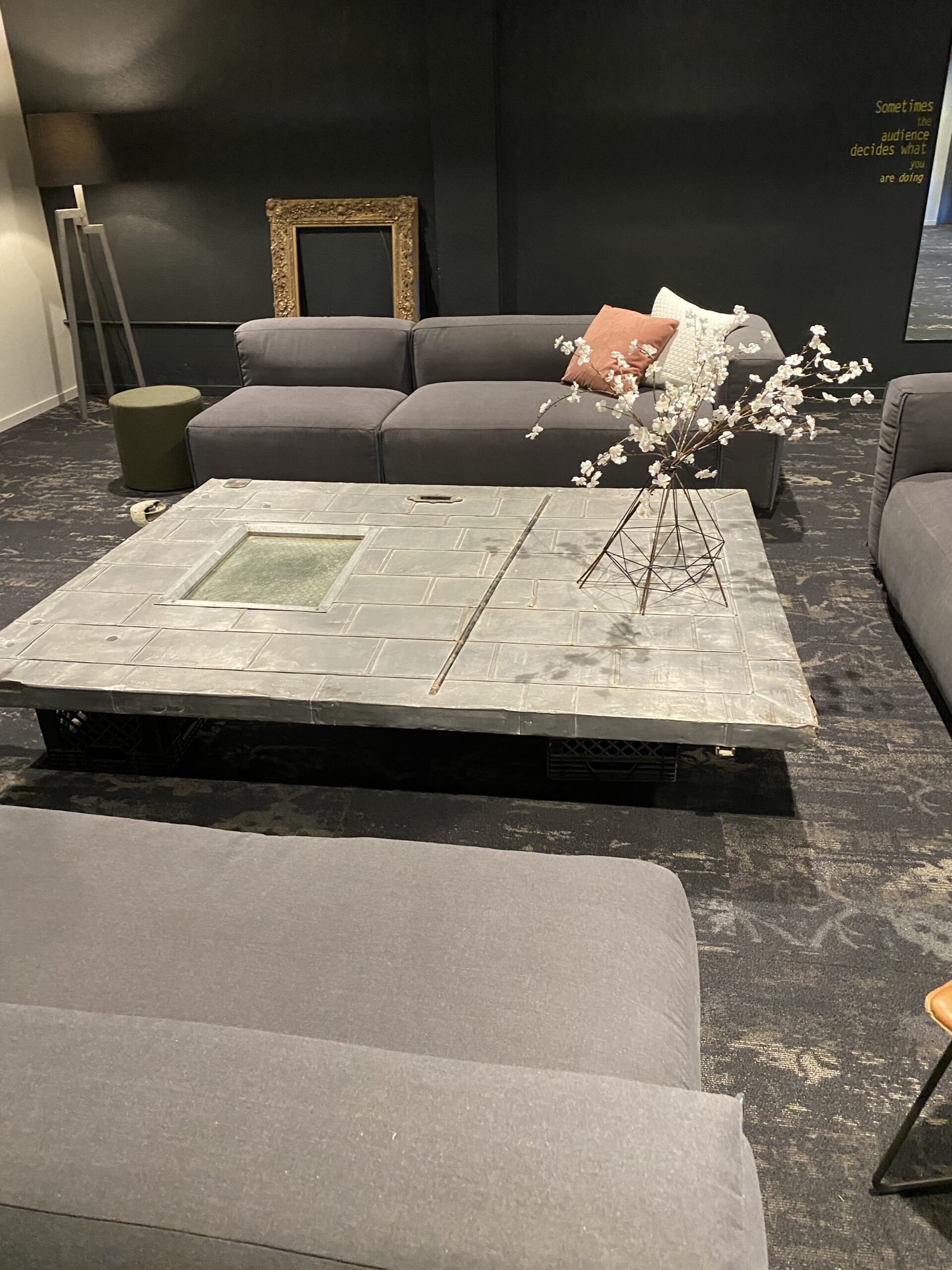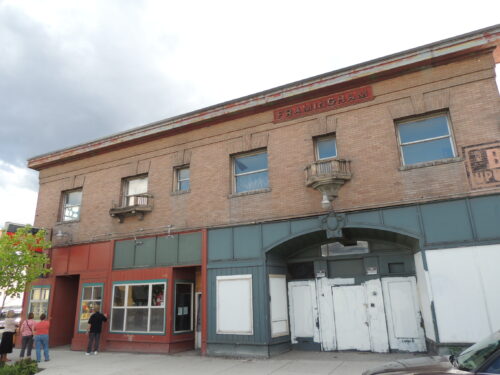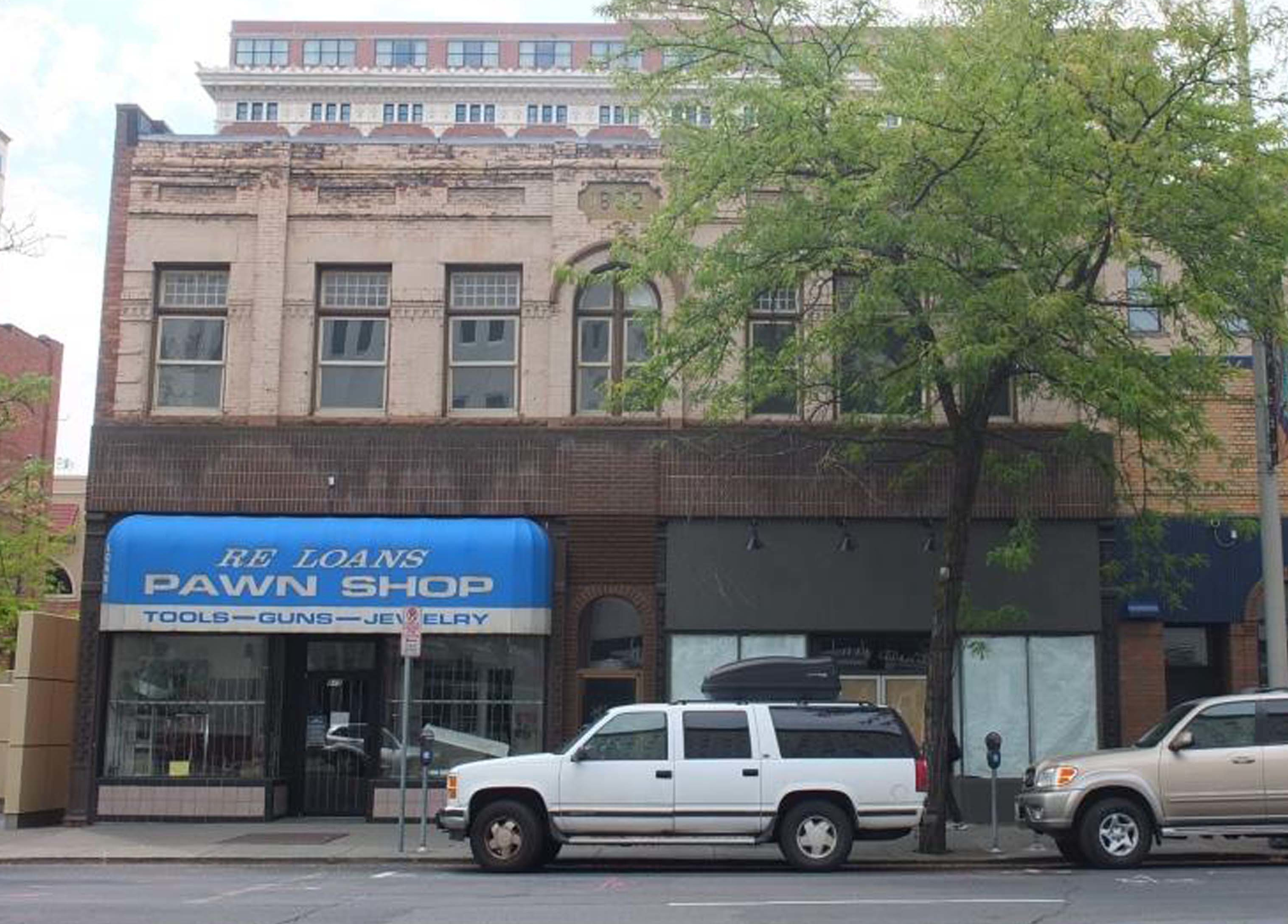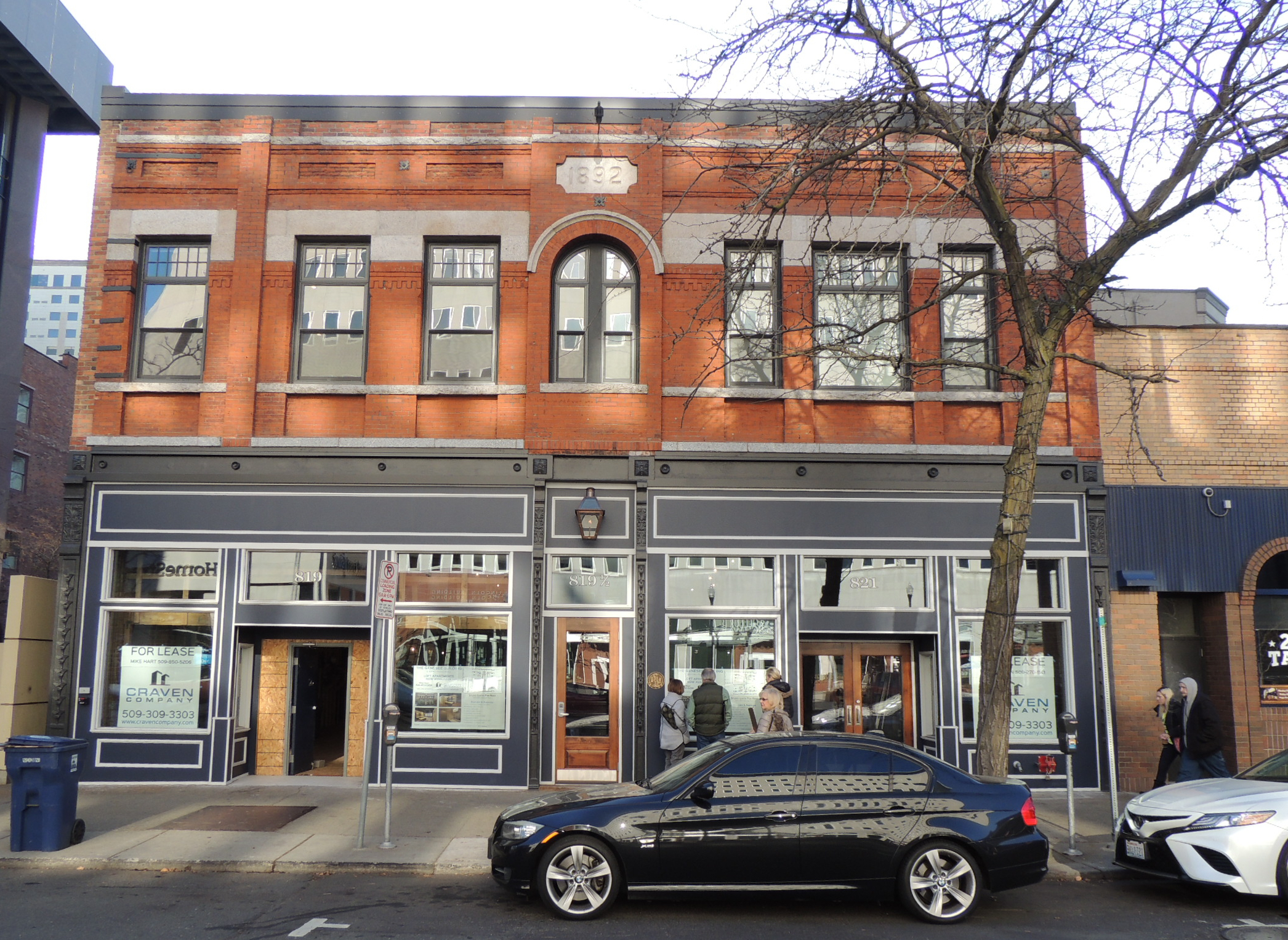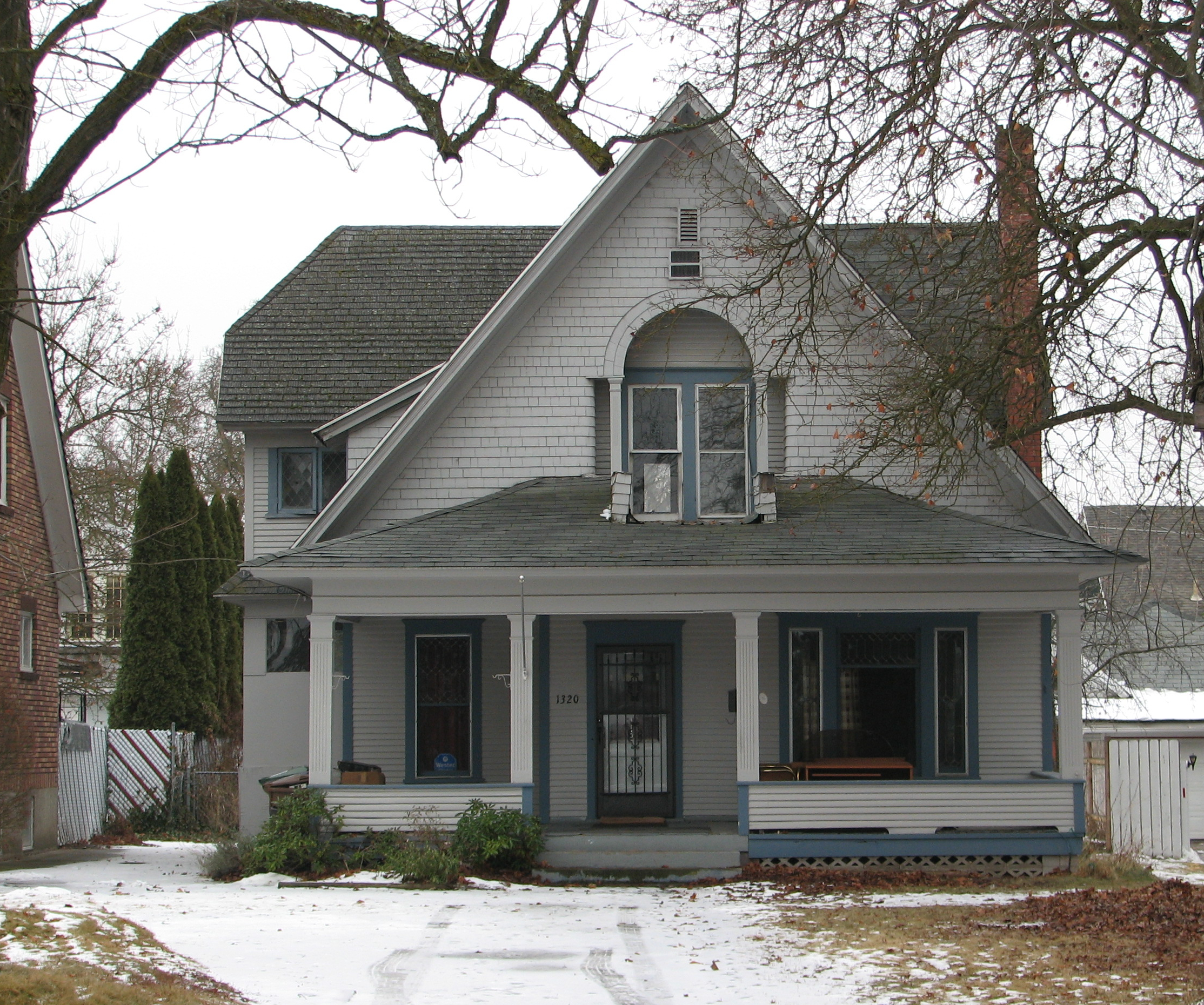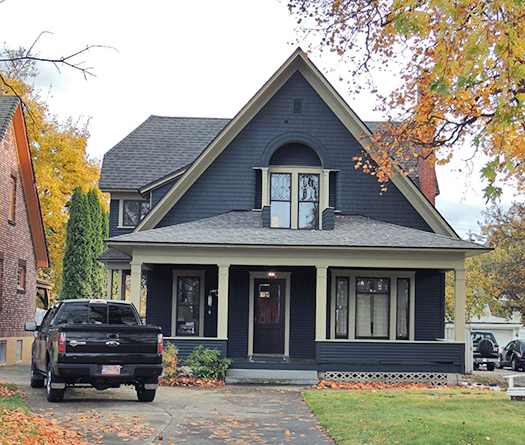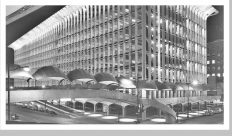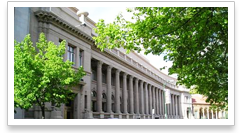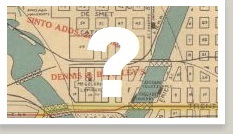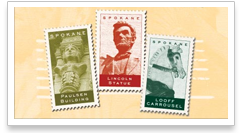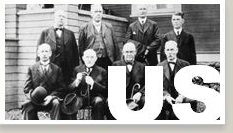INCENTIVES
Investment Tax Credit | Special Valuation | Historic Preservation Façade Improvement Grant
Facade/Conservation Easement | Conditional Use Permit | Building Code Relief
Several government-sponsored incentives are available to owners of designated historic properties in Spokane City and greater Spokane County. While this list provides information regarding government funding, a list of private sources is available here.
Investment Tax Credit
A Federal income tax credit may be granted to commercial properties that are listed on the National Register of Historic Places, and on which “substantial rehabilitation” is performed. Pre-certification (phase 1) and completion (phase 2), review and approval by the Washington State Department of Archaeology and Historic Preservation and the National Park Service, is required. Rehabilitation must comply with Federal standards for preservation of historic properties. The tax credit can be amortized.
What it does: Dollar-for-dollar Federal income tax credit equal to 20% of the construction costs for rehabilitating an income-producing building; the credit may be used by the building owner or “sold” to a tax credit investor.
Minimum investment: 100% of the building’s “adjusted basis”; that is, the purchase price minus the land cost and depreciation, plus prior improvements. For non-contributing properties in a National Register Historic District constructed prior to 1936, a 10% Federal rehabilitation tax credit is also available.
What it does: Dollar-for-dollar Federal income tax credit equal to 10% of the construction costs for rehabilitation of an income-producing, non-residential building constructed prior to 1936 (contributing properties listed on the National Register of Historic Places are ineligible).
Minimum Investment: 100% of the building’s “adjusted basis” – that is, the purchase price minus the land cost and depreciation, plus prior improvements.
To learn more about Federal Historic Preservation Tax Incentives, click here.
Special Valuation
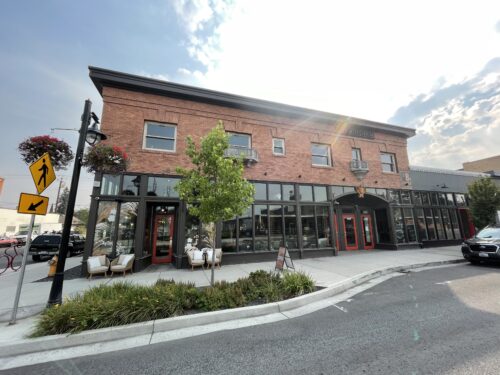
After an extensive rehabilitation, the Framingham Building will take advantage of the 10 year Special Valuation property tax reduction incentive.
What it does: Special Valuation is the revision of the assessed value of an historic property which subtracts, for up to ten years, such rehabilitation costs as approved by the Spokane City-County Historic Landmarks Commission. Properties must be listed on the Spokane Register of Historic Places to qualify, and rehabilitation must comply with the Secretary of the Interior’s Standards for Rehabilitation. Rehabilitation costs must total 25% or more of the assessed valued of the structure (not the land) prior to rehabilitation.
Eligibility:
To be classified as eligible for Special Valuation, a property must meet the following criteria:
- The property must be listed on the Spokane Register of Historic Places, individually, or certified as a contributing property within a Local Register Historic District.
- The Historic Landmarks Commission must have approved the work that was completed.
- Work must have been completed no more than 24 months prior to the application to the Assessor’s Office.
- Rehabilitation costs must be equal to at least 25% of the assessed value of the structure, excluding land, prior to rehabilitation. The County Assessor’s Office sets the value of the property.
Considerations:
- Application for special valuation must be made no later than 24 months after the beginning date of the rehabilitation work included therein. In other words, the 24 month period stops at the date of the application to the Assessor’s office. For example, if an application is turned into the Assessor’s office in October of 2018, costs may be accumulated from October of 2016 to October of 2018.
- October 1st is the annual deadline if the applicant wishes the application to be heard in that calendar year.
- Improvements must be consistent with the historic character of the building and meet the Secretary of the Interior’s Standards for Rehabilitation.
- In order for a historic property to be eligible for Special Valuation, it must have been substantially rehabilitated – 25% of assessed improvement value.
- The property must be maintained in good condition as long as the special valuation is in effect.
- Reduction in property taxes appears two years after Special Valuation approval and applies until the year following the ten-year period of Special Valuation.
- Property owners of commercial properties who receive special valuation for a rehabilitation project may also apply for the Federal Investment Tax Credits for the same project.
- The penalty for violating the agreement or other program requirements is substantial. Violators would have to pay the following: all back taxes that would otherwise have been owed, interest on back taxes, and a penalty equal to 12% of back taxes and interest may be due.
- Appeal Process: Any decision on the disqualification of a historic property for special valuation exemption or any other dispute may be appealed to the current year Board of Equalization by July 1st or 30 days after the disqualification, whichever is the latter.
Examples of Expenditures that Qualify for Rehabilitation Cost Total:
Exterior: Windows, doors, painting, roofing
Interior: Plumbing, electrical, lighting, wiring, flooring, doors, windows; heating/air conditioning, finish work, cabinetry (affixed to the wall);
Other: Architectural/consultant fees, taxes, insurance, and utilities during construction, construction administration expenses, construction phase interest expenses.
Examples of Expenditures that Do Not Qualify for Rehabilitation Cost Total:
Homeowner labor
Acquisition costs
Enlargement of the building
Costs for permanent financing
Overhead costs
Fixtures that are not attached
Landscaping costs
Appliances (except if built-in)
Application Fees (Auditor filing fees were increased to $303.50 1/1/24, other fees effective 1/22/2025):
| Special Valuation Tax Incentive Fees: | |
| Residential Property: | $150.00 + $303.50 |
| Commercial Property (based on cost of rehab): | |
|
Less than $1M |
$350.00 |
|
$1M to $5M |
$1,000.00 |
|
Over $5M |
$1,500.00 |
| All properties receiving Special Valuation must also pay the Auditor’s Filing Fee: | County Determined Fee – $303.50 |
View Spokane Special Valuation Program Brochure
View a general Special Valuation brochure: Special Valuation Flyer
Download the Special Valuation Application
Special Valuation Checklist Affidavit for Applicant
Residential Special Valuation Application Example
Commercial Special Valuation Application Example
Download a detailed Special Valuation Brochure from the State Department of Archaeology and Historic Preservation: DAHP Special Valuation Program
Historic Preservation Façade Improvement Grant
Introduced in 2019, the Spokane Historic Preservation Office is excited to offer the Historic Preservation Façade Improvement Grant. Created by a 2018 revision to the City’s Historic Preservation Ordinance, the Historic Preservation Façade Improvement Grant Program provides selected applicants with matching funds up to $5,000 for the rehabilitation of historic façades. All properties listed on the Spokane Register of Historic Places AND within the City of Spokane are eligible to apply.
2025 Historic Preservation Façade Improvement Grant Applications
Looking for money to help rehabilitate your historic building? We’ve got some! The Spokane Historic Preservation Office is excited to offer the Historic Preservation Façade Improvement Grant for the fifth cycle. Created by a revision to the City’s Historic Preservation Ordinance, the Historic Preservation Façade Improvement Grant Program provides selected applicants with matching funds up to $5,000 for the rehabilitation of historic façades. All properties listed on the Spokane Register of Historic Places AND within the City of Spokane are eligible to apply. (This includes contributing properties in the Browne’s Addition Local Historic District, the Cannon Streetcar Suburb Local Historic District, Corbin Park Historic District, and the Hillyard Historic District.)
Properties that have completed a grant project in the past:
- Garland Theater (2019)
- Fotheringham House (2020)
- Powell House (2020)
- Turner Mansion (2020)
- Kehoe Block (2021)
- Winter House (2022)
- Hillyard Laundry Building (2023)
- Taylor House (2023)
- Weil House (2024)
- Fotheringham Residence (2024)
- Highland Park United Methodist Church (2024)
- Powell House (2024)
Applications for the 2024 grant cycle are due on Monday, April 7. 2025.
Link to the full application packet
Please contact Logan Camporeale with any questions: lcamporeale@spokanecity.org.
Swipe the photos below to see what a little façade love can do!
Façade/Conservation Easement
An easement is a legal agreement whereby the private owner gives up certain privileges with regard to controlling the appearance of his or her real property. Once imposed, it “runs with the land,” obligating future owners to abide by its terms and thus providing effective long-term protection for an historic property in private ownership. In addition, preservation easements can offer potentially significant federal income, estate and gift tax consequences. In exchange for the donation of an easement, consisting of either a portion of land or a building’s facade, an owner may: a) claim a one-time Federal income tax deduction, and b) realize a permanent property tax reduction based on the value of the donated property. The easement must be granted to a qualified entity; and in exchange, the owner must agree to maintain the donated property.
The preservation easement may be drafted to prohibit alterations to significant features of a building, changes in usage of the building and land, topographical changes, subdivision, or further development without the prior review and approval of the easement holder. By limiting changes to an historic site, the owner alters the property’s market value, while benefiting the general public. This change in market value can be treated like any other charitable contribution deduction.
The Internal Revenue Service has recognized the “before and after” valuation test as the approach to be utilized in placing a value on preservation easements. Under this method, the fair market value of the property after the granting of the preservation easement is subtracted from the property’s fair market value prior to the easement donation. The difference is the value of the preservation easement for federal income, estate and gift tax purposes. The actual value of a preservation easement should be determined by a qualified appraiser.
More detailed information on preservation easements, including a sample easement agreement, may be obtained through the Historic Preservation Office.
Due to the complexities of easements and potential tax consequences, those interested are also strongly encouraged to consult a qualified attorney or financial advisor early in the process.
Download Facade Easement Agreement
Conditional Use Permit
A permit allowing a non-conforming use may be granted to an historic property by the City or County Zoning Board. The property and use may be declared eligible by the Landmarks Commission.
For more information, contact the Historic Preservation Office or Planning Services at (509) 625-6300.
Building Code Relief
Relief from building code requirements may be granted to historic properties by local code enforcement officers. The Landmarks Commission may recommend historic property eligibility and code deviation.
Download the Application for Code Relief
